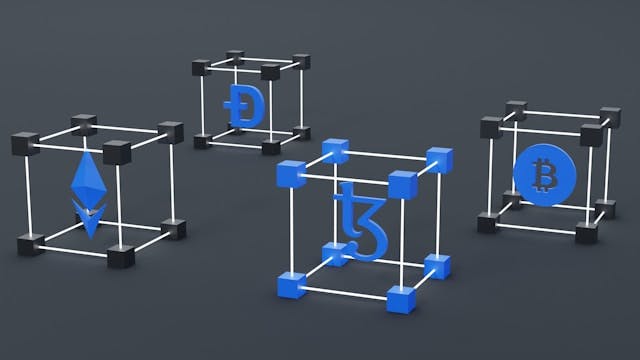The Rise of Decentralised Finance (DeFi) – Revolutionising the Financial Industry
In recent years, a transformative movement known as Decentralised Finance, or DeFi, has emerged, challenging traditional financial systems and offering innovative solutions. DeFi leverages blockchain technology to create an open, transparent, and accessible financial ecosystem without the need for centralised intermediaries like banks or brokerages. This shift is not just a technological advancement but a fundamental change in how individuals and businesses interact with financial services.

Understanding Decentralised Finance
Decentralised Finance refers to a broad range of financial applications built on blockchain networks. Unlike traditional finance, which relies on central authorities to manage and approve transactions, DeFi operates on decentralised platforms where users retain control over their assets. This model eliminates the need for intermediaries, reducing costs and barriers to entry while increasing efficiency and transparency.
At the core of DeFi are smart contracts—self-executing agreements coded on blockchain platforms like Ethereum. These contracts automatically enforce the terms of an agreement when predefined conditions are met, enabling complex financial transactions without human intervention.
The Foundations of DeFi
The rise of DeFi is rooted in several key principles, including transparency, accessibility, interoperability, and permissionless innovation.
Transparency means that all transactions are recorded on a public ledger, allowing anyone to verify and audit them. This openness builds trust and reduces the possibility of fraud.
Accessibility refers to DeFi platforms being open to anyone with an internet connection, regardless of geographic location or socioeconomic status. This inclusivity empowers individuals who have been traditionally excluded from the financial system.
Interoperability allows DeFi applications to interact seamlessly with one another, creating a cohesive financial ecosystem where different services and platforms can work together.
Permissionless innovation enables developers to build and deploy DeFi applications without seeking approval from central authorities. This fosters a vibrant environment of creativity and rapid development.
How DeFi Is Revolutionising Finance
Eliminating Intermediaries
Traditional financial systems rely heavily on intermediaries to facilitate transactions, introducing delays, increasing costs, and creating single points of failure. DeFi removes these intermediaries by allowing peer-to-peer transactions through smart contracts. This not only speeds up processes but also reduces fees associated with third-party services.
Enhancing Financial Inclusion
DeFi opens up financial services to unbanked and underbanked populations worldwide. With just a smartphone and internet access, individuals can participate in global finance, access loans, earn interest, and invest in assets previously out of reach. This democratisation of finance empowers people who have been marginalised by traditional banking systems.
Innovating Financial Products
DeFi has led to the creation of new financial instruments and services. Decentralised exchanges (DEXs) allow users to trade cryptocurrencies directly without a central authority, providing greater control and security. Yield farming enables users to lend or stake their crypto assets to earn rewards or interest, offering new income opportunities. Stablecoins, cryptocurrencies pegged to stable assets like fiat currencies, provide a hedge against volatility. Decentralised lending platforms enable users to borrow or lend assets in a trustless environment, often with over-collateralisation to mitigate risk.
Increasing Transparency and Security
Blockchain's immutable ledger ensures that all transactions are transparent and tamper-proof. This level of transparency builds trust among users and reduces the likelihood of fraud. Additionally, because DeFi platforms are decentralised, they are less vulnerable to systemic failures or attacks targeting a central point. Security is enhanced through cryptographic protocols that protect user data and assets.
Challenges Facing DeFi
Despite its potential, DeFi is not without challenges. Regulatory uncertainty poses a significant hurdle, as governments around the world grapple with how to regulate DeFi, leading to legal ambiguities. Security risks are also a concern; smart contracts, if not properly audited, can have vulnerabilities that hackers might exploit. Scalability issues arise as DeFi platforms grow, leading to congestion and high transaction fees, especially on networks like Ethereum. The user experience can be a barrier for mainstream adoption, requiring more intuitive interfaces and education to make DeFi accessible to a broader audience.
The Future of DeFi
The momentum behind DeFi suggests it will continue to grow and evolve. Innovations aimed at addressing current challenges are underway. Layer 2 solutions are technologies designed to improve scalability and reduce fees by handling transactions off the main blockchain. Cross-chain compatibility efforts aim to enable different blockchain networks to communicate and transact with each other seamlessly. Improved security protocols, including enhanced auditing tools and security measures, are being developed to protect against hacks and exploits. Regulatory engagement involves collaboration between DeFi projects and regulators to establish frameworks that protect users without stifling innovation.

Impact on Traditional Financial Institutions
Traditional banks and financial institutions are beginning to recognise the potential of DeFi. Some are exploring ways to integrate blockchain technology into their services, while others are investing in or partnering with DeFi projects. The rise of DeFi poses both a challenge and an opportunity for these institutions to adapt and innovate. By embracing DeFi technologies, traditional institutions can enhance their offerings, improve efficiency, and stay competitive in a rapidly changing financial landscape.
Conclusion
Decentralised Finance represents a significant shift in the financial landscape, offering a more open, efficient, and inclusive system. By removing intermediaries, enhancing transparency, and fostering innovation, DeFi has the potential to democratise finance on a global scale. While challenges remain, the ongoing developments and growing adoption suggest that DeFi will continue to revolutionise the industry.
At Mighty Labs, we are at the forefront of this financial revolution. Our expertise in blockchain technology and decentralised solutions empowers businesses and individuals to navigate the DeFi landscape confidently. Whether you're looking to integrate DeFi services into your operations or explore new financial opportunities, we can guide you through every step.
Ready to embrace the future of finance? Contact Mighty Labs today and discover how we can help you harness the power of Decentralised Finance.
Ready to have a conversation?
Book a call with us